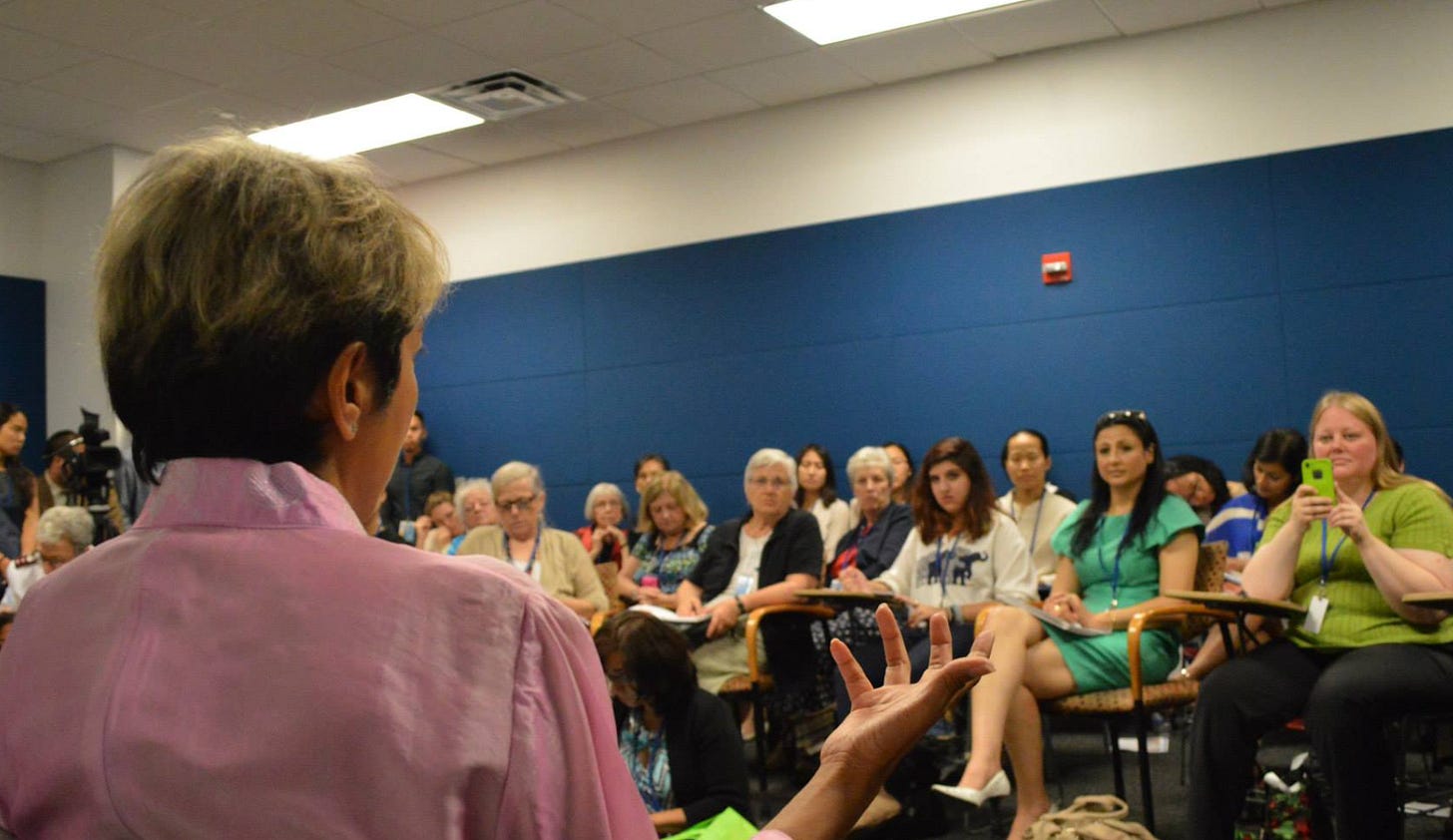Progressive Islamic leader discusses reproductive rights, Jewish-Muslim relations
A coalition of religious organizations united recently to file an amicus brief in support of continued medication abortion access.
A progressive Muslim leader spoke to me about a wide-ranging number of topics, including her religion’s treatment of reproductive rights and how liberals should handle discussions about the Israeli-Palestinian conflict.
Ani Zonneveld, president of Muslims for Progressive Values, is a Grammy Award winner and is involved with numerous organizations that advance human rights. Recently, her organization joined an amicus brief that was filed in the Alliance for Hippocratic Medicine v. U.S. Food and Drug Administration case, which will determine whether mifepristone will stay on the market.
“Even the traditional interpretation of Islam accepts abortion as a right,” Zonneveld said.
Islam accepts abortion for several reasons. It can be done for economic reasons and the woman's mental and physical health.
“It's very liberal,” Zonneveld said. “Even if conservative Muslims have taken that position in their jurisprudence of this issue, it's encouraging.”
Most Muslims mark the 120th day of pregnancy as the point that women can get an abortion without a spirit filling the fetus.
The amici curiae brief included several Jewish, Christian, and other religious groups. It argued every woman should be able to decide for herself whether to carry on with a pregnancy and to be informed by whatever religion they had. The brief gave the reasoning:
The Fifth Circuit’s decision would make it difficult or impossible for many women to access abortion care consistent with their moral values and the teachings of their religious faith by restricting patient access to a safe medication that is used in most abortions in the United States today. Moreover, the burden of these restrictions would fall most heavily on vulnerable women from marginalized communities— people that many religions view as particularly deserving of protection.
Zonneveld and I spoke about the war between Israel and Hamas. That has been something that leaders in the reproductive rights movement have struggled with since it broke out in the Middle East.
In an October newsletter, the Religious Coalition for Reproductive Choice framed the war as a perpetuation of a colonialist narrative.
We clearly see how these atrocities are part of a longstanding cycle of violence shaped by the legacy of colonialism, racism, and religious oppression that spans millennia.”
A week later, the organization issued an apology for its use of the word colonialism.
While we mourn the tragic loss of innocent Israeli and Palestinian lives, it’s also critical that we avoid oversimplifications that degrade our moral clarity and shared dignity as humans. The intention of our statement was to express an all-encompassing compassion and bear witness to the totality of human suffering in the region, but we missed the mark.
Part of the problem rests with journalists, who oversimplify politicians’ positions as either pro-Israel or pro-Palestinean when most Americans have more nuanced views. Most reports I’ve read in my local newspaper also fail to give historical context on the war. A good documentary that I recently watched that is worth checking out if you’re in the reproductive rights movement was Frontline’s Netanyahu, America & the Road to War in Gaza.
Reproductive rights leaders and activists need to realize both Muslim and Jewish people continue to play a vital role in the movement, and things that may divide them or us must be discussed with respect for complexity. Tension in that part of the world and diplomatic resolution have perplexed brilliant people, including Henry Kissinger, Bill Clinton, and Barack Obama. It’s even harder to understand and offer solutions for the rest of us.
Zonneveld hoped the media would cover the war better and the respective sympathies in America. She also said that even with the disagreements–and Republicans' efforts to exploit them–there is a fundamental agreement between progressive Jewish and Muslim organizations that we should protect reproductive rights.
“There are these external factors, like Israel and Palestine, that can create a wedge between us,” Zonneveld said. “Even though there may be a gap between the two, between the Muslim organization and other Jewish organizations in our partnerships, it hasn't created that space, big enough, where we would end our partnership and relationship on this issue.”




